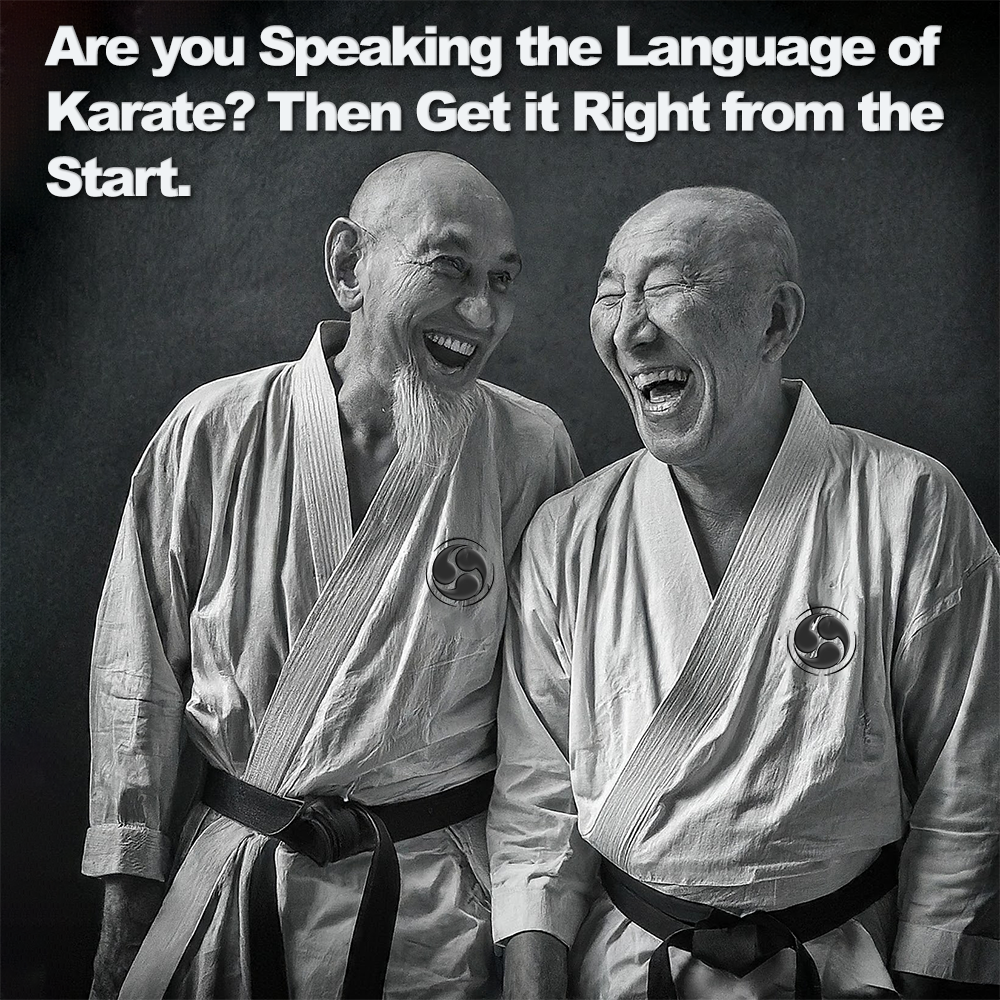
(1 minute 48 second read)
Do you use Japanese terminology in your dojo?
.
I always tell my students that karate originated from Okinawa and Japan, thus it is common to use Japanese terminology and other cultural aspects in the dojo.
.
But why bother? What difference does it make? There are many dojo where almost no Japanese is used, yet the standard of karate is still very high.
.
One thing for sure, pronouncing Japanese better will NOT make you any better at karate.
.
There is nothing mystical about using Japanese rather than English, really this is just part of the tradition.
.
However, it is important that if you use Japanese terms try to use them right and understand what you are saying.
.
In every field of interest, there is a certain risk in using technical terms. If two people communicate with a different understanding of the same technical term, they may think they understand each other while in fact they are at cross-purposes.
.
For those with very little interest in the historical and cultural side, you can probably get away with just some basic technique names that will help with recognition if you go to other dojo, and then go deeper into the translation for the students who do have a genuine interest.
.
There is value in a common terminology. For karate, Japanese has provided that terminology, so it’s important to be aware of those terms if you are seeking to interact with other martial artists in different dojo. Unfortunately that same terminology can sometimes get us hung-up on what the technique is actually used for.
.
When the Japanese began to spread karate worldwide, they did so using their own language, it was generally the only language they spoke. The problem comes in the lack of understanding from non-speaking Japanese resulting in mistranslations, mispronunciations and misunderstandings.
.
Am I saying that you need to speak Japanese in order to learn what many recognize as a Japanese art? Certainly not.
.
In my view, it is best to explain concepts to people in their language. I have taught in many different dojo in several different countries, and personally, I explain ideas and concepts in English, but I also attach the Japanese label due to the fact it’s the accepted terminology.
.
The understanding of Japanese terms in karate can be surprisingly shallow. Practitioners may misunderstand the meaning in two ways: either grasping only a limited definition or misinterpreting it to encompass a much wider concept.
.
So if you are using Japanese language in your dojo, try at least to make sure you get it right.
.
